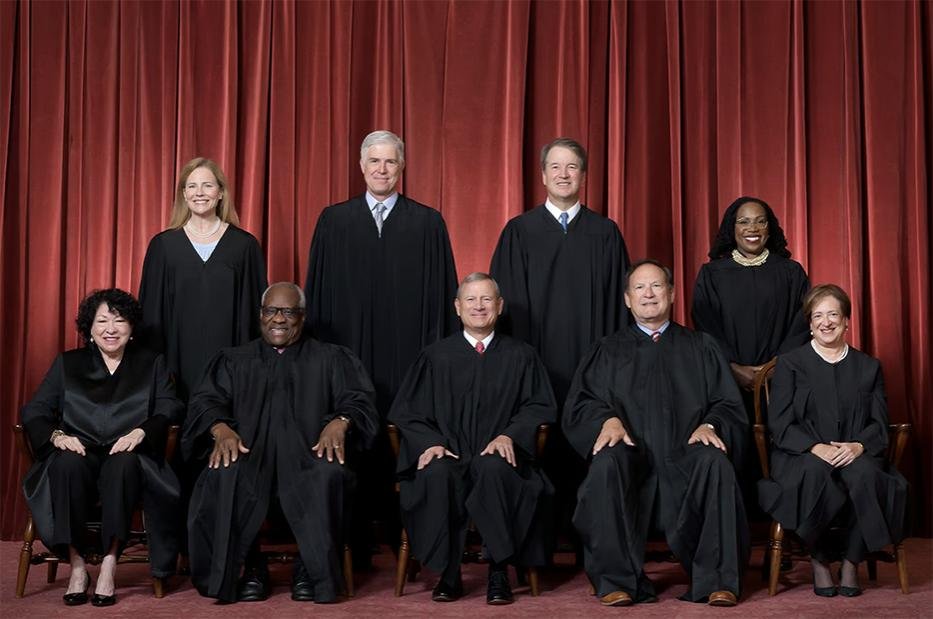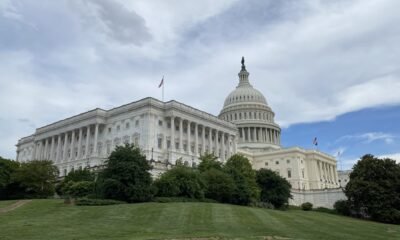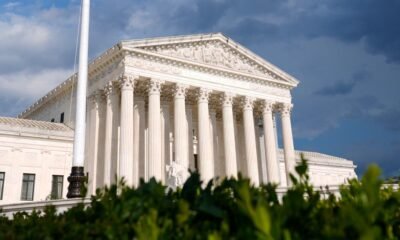crime
Senate Panel Unveils SCOTUS Ethics Report: Key Findings, Minimal Impact

Senate Democrats released a comprehensive report on Saturday, reflecting over a year of investigation into the Supreme Court’s ethical conduct. Lawmakers asserted the findings revealed a troubling pattern of ethical lapses among justices. Despite these alarming revelations, Democrats appear poised to relinquish their Senate majority without enacting significant reforms to address the perceived ethical crisis within the court.
The Senate Judiciary Committee, led by Majority Whip Dick Durbin, initiated inquiries in response to reports suggesting that justices like Clarence Thomas and Samuel Alito failed to disclose opulent vacations and gifts on their annual financial disclosures. Many of these undisclosed perks came from influential conservative donors who later had interests before the Supreme Court. The report, obtained by Courthouse News, reiterated concerns expressed by Democrats regarding undue influence from high-profile benefactors.
Focusing on Leonard Leo, co-founder of the Federalist Society, the report highlighted his efforts to connect conservative advocates with Republican-appointed justices. “For decades, Leo has facilitated access to justices in an effort to advance conservative causes,” the Democratic lawmakers stated. Additionally, Leo has financially supported organizations run by Ginni Thomas, wife of Justice Clarence Thomas, and organized events with other justices.
The report revisited direct allegations against justices. It noted that Thomas breached federal law by failing to disclose travel expenses funded by Harlan Crow. Alito was said to have exploited a loophole in federal disclosure regulations to omit details about a private jet trip to Alaska in 2008. This was not the first instance of a justice allegedly misusing disclosure guidelines; late Justice Antonin Scalia was also cited for accepting gifts without reporting them for multiple years.
Alito’s conduct has prompted further scrutiny, especially after a reported interview where he criticized congressional attempts to regulate ethics. Following the January 6 Capitol incident, two flags emblematic of the “Stop the Steal” movement were observed outside Alito’s residence, raising questions about his impartiality in election-related cases.
Democrats reiterated their calls for an enforceable code of ethics for the Supreme Court, emphasizing that Chief Justice John Roberts’ introduction of a new ethics code lacks a solid enforcement mechanism. Although Rhode Island Senator Sheldon Whitehouse spearheaded efforts in 2023 to mandate a more stringent code through the SCERT Act, Senate Republicans condemned the initiative, viewing it as an attack on the court’s integrity. The proposal ultimately failed to gain traction in the Senate.
In an effort to gather more evidence, Judiciary Democrats sought to subpoena Crow, Arkley, and Leo regarding their financial interactions with justices. Although an attempt to subpoena Leo was met with opposition from Republican members of the committee, limited agreements secured some information from Crow regarding undisclosed flights associated with Thomas. However, Leo has resisted compliance with the subpoena, undermining the inquiry.
The Judiciary report suggested that further investigation is necessary, specifically stating that some issues can only be clarified through testimony from justices themselves. Notably, Chief Justice Roberts has so far declined invitations to testify. Unfortunately, with an impending shift in Senate leadership favoring Republicans, the prospect of ongoing investigations remains uncertain. Senate Minority Leader Mitch McConnell expressed relief that a Republican majority would likely curtail scrutiny of the Supreme Court’s actions.
Despite setbacks in legislative efforts, Democrats believe their inquiries have increased public awareness regarding the ethical conduct of justices. Durbin maintained that the situation demands a legislative remedy, warning that the erosion of trust could have lasting implications for the court’s legitimacy. “The highest court in the land can’t have the lowest ethical standards,” he asserted.


















